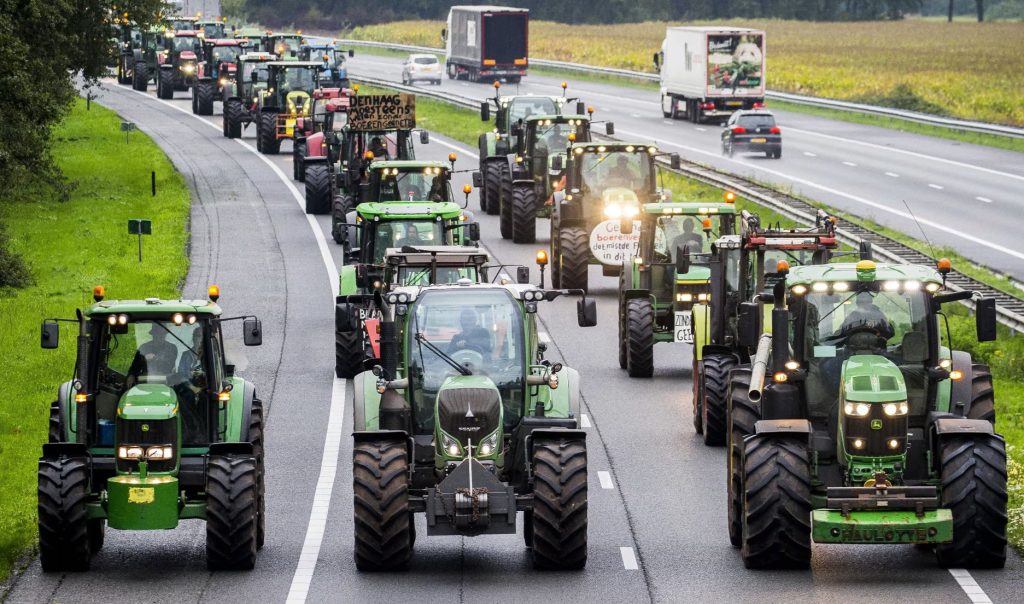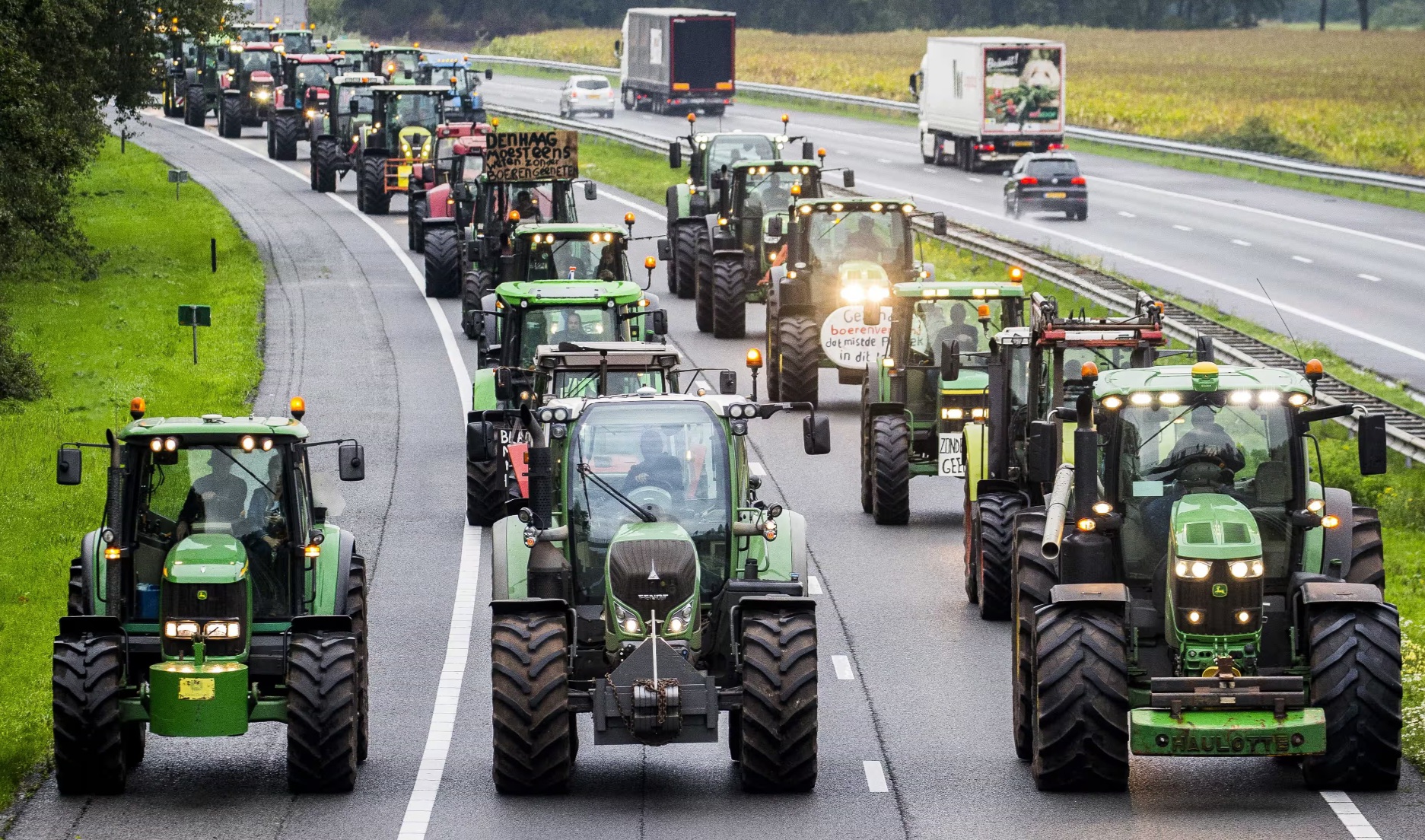








European farmers’ protests signal a continent-wide crisis, challenging EU agricultural policies and highlighting the sector’s economic struggles amid climate goals.


Welcome back to Europe Brief, where we take a look at the continent-wide farmer protests shaking the very foundations of European agriculture. From Germany’s initial outcry over subsidy cuts to the barricades on the Belgian-Dutch border, these demonstrations highlight a deep-rooted discontent across Europe. Farmers are pushing back against a cocktail of challenges: falling prices, rising costs, stringent EU regulations, and the threat of cheap imports, all set against the backdrop of ambitious climate goals.
The protests of German farmers that started on 18 December 2023 have a spillover effect over all Europe and it unveiled years of problems of agricultural sector and of the farmers of Europe despite of the fact that CAP (Common Agricultural Sector) receives 1/3 of the EU budget. The spark for other protests of European farmers came from Germany.
Initially the protests in Germany started due to the government’s path of action to abolish subsidies for agricultural diesel and the introduction of a vehicle tax for agricultural vehicles. Because the farmers and the union of farmers could not take sufficient concessions and promises from the government, the protests of farmers have become fierce and are still ongoing since 18 of December.
After the protests in Germany there has been another movement organized in Netherlands. In Dutch case the situation appears to be different from other countries because the first protests started in 2019 due to the governments proposal of halving the livestock population to limit the agricultural population, and there have been other protests in 2021 and 2022 against the government’s new proposals in the agriculture sector.
And lastly, in early February 2024, Dutch farmers blocked the Belgian-Dutch border crossings in an attempt to protest low prices for products, rising costs, cheap imports from third countries such as Ukraine and constraints imposed by the EU in order to fight climate change and to reach carbon neutrality goal until 2050.
Other broad protests came from French farmers in the late January and early February 2024. The reason why French farmers held protests were not so different from their German and Dutch counterparts. French farmers also complained about the low food prices and proposed reductions in state subsidies for farmers’ diesel fuel and possible negative impacts of an EU-Mercosur free trade agreement on European farmers.
Belgium has a sui generis position in these protests as Brussels is the de facto capital of the EU. Against EU’s announcement of more strict green policies, Belgian farmers and other farmers from different EU countries took to the streets and protested EU, EU’s inactivity towards European farmers’ economic plight while EU leaders were in Special European Council Summit in Brussels on February 1, 2024. The protests in Brussels, Belgium revealed the scale of economic plight of European farmers.
Furthermore, in Portugal, farmers blocked roads linking Portugal to Spain with tractors and the border remained blocked in the early February 2024. Also, the Spanish farmers, at the same week, said that they would take to the streets in February to protest European regulations, lack of government support and cheap imports from third countries. Polish farmers also worked in cooperation with German farmers in their protests and they blocked German-Polish border, and moreover they threatened to close their Ukrainian borders from where cheap imports are coming from Ukraine. Lastly, Italian, Bulgarian, and Romanian farmers took to the streets to protest their governments, low prices, increasing costs, EU regulations, and cheap imports from third countries.
It appears that common reasons for protests of European farmers all over the Europe are the increasing life and livelihood costs, low prices in agriculture, cheap imports from warn torn Ukraine and EU regulations which dictate or prohibit the use of pesticides or limits livestock or fertilizers to some degree. In an effort to mitigate these protests, national governments gave concessions and promised to ameliorate the conditions of farmers and some protests are diminished such as in the example of France, however majority of protests are still ongoing all over the Europe.
EU has also given some concessions on the agriculture, and this might affect its highly ambitious Green Deal Plan which sets the ambition of reaching climate neutrality until 2050 by limiting the use of fertilizers, pesticides, and the number of livestock. Since the EU Green Deal foresees some limitations that paved the way for farmers to protest in Europe, the European Commission dropped some key passages in its 2040 goal for reducing greenhouse gas emissions, a mention of 30% cut to agricultural pollution between 2015-2040 had been removed.
Furthermore, the European Commission proposed to limit agricultural imports from Ukraine via an emergency brake and it exempted farmers for the year of 2024 from an obligation to keep 4% of the land fallow while still receiving subsidies from the EU.
Brussels is concerned with the rising popularity of far-right parties in Europe which are successful at hauling the support of farmers in their economic plight to use in their own political discourses. On the other hand, EU is proposing solutions, and it makes amendments since it’s anxious and stressed because of the possible impact of far-right parties could create in the European Parliament and shape the European politics in the aftermath of the European Elections in June 2024.
Written By: GABRIEL RAMIREZ
Written By: DILARA SAHIN
Written By: DILRUBA YILMAZ
Written By: NILAY CELIK
Written By: ELDANIZ GUSSEINOV
Written By: JOSEF SCHOEFL
Written By: SELCAN BEDIRHANOGLU
Written By: FATIH CEYLAN
FA’s flagship evening newsletter guilding you through the most important world streis ofthe day. Delivered weekdays.
